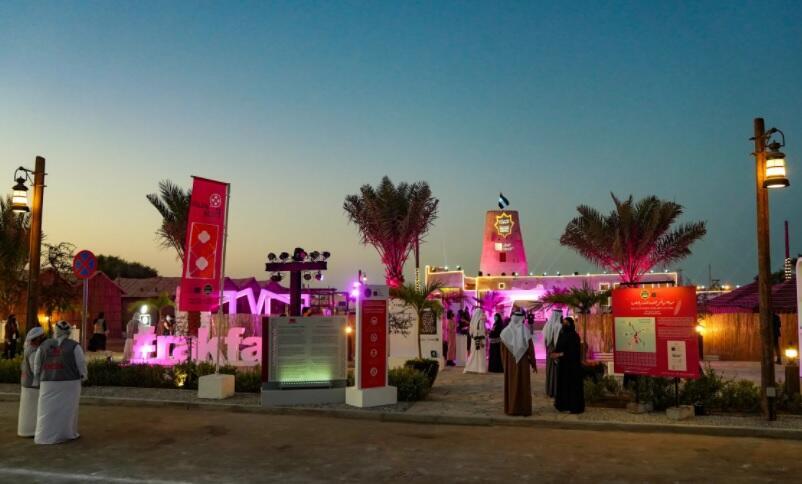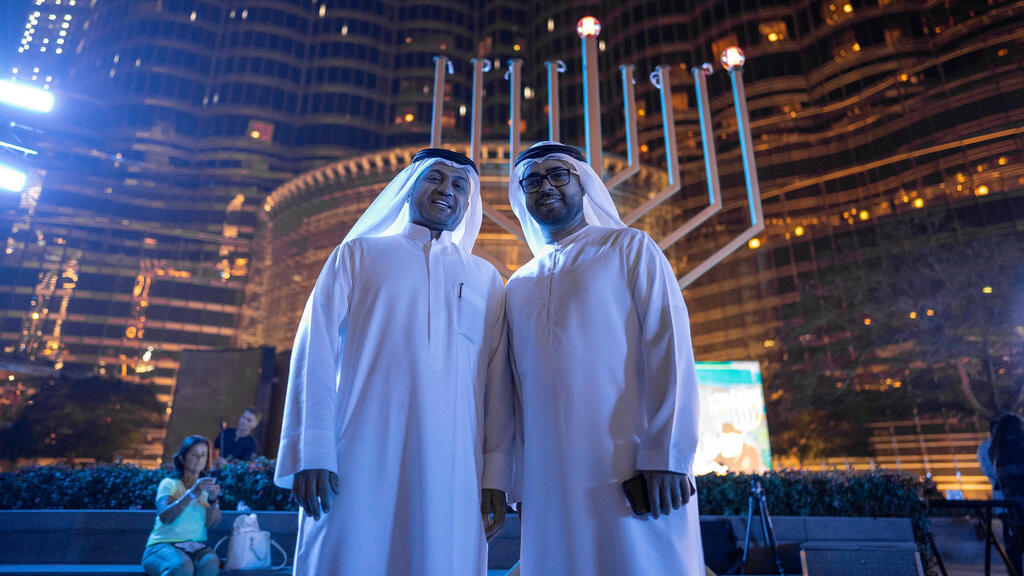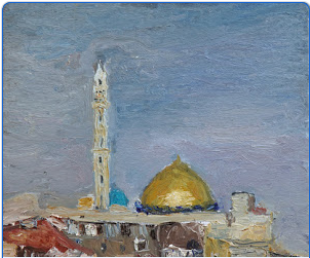In a region riven by war and conflict, never before has cultural diplomacy been more important. The relationships between countries generally revolve around a few key sectors: firstly business, health and security, then tourism, culture, education and art.
We have already witnessed the amazing impact of the Abraham Accords especially as it relates to business and tourism. Now, the Ras Al Khaimah Fine Arts Festival in the United Arab Emirates has taken the bold step of hosting the Gulf’s first-ever group exhibition of contemporary art, a pioneering move in the cultural scene.
3 View gallery


The Ras Al Khaimah fine arts festival in the United Arab Emirates
(Photo: The Media Line)
This is what I like to call art diplomacy, a tool that has been used by strategic leaders around the world for centuries. This year, as the festival’s guest curator, I believe the exhibition of some of Israel’s best artists is the chance to showcase commonality between Israel and our neighbors through the medium of art. Alliances can only be formed through an understanding of ‘the other,’ and this is where art is pivotal.
My vision has always been to build artistic bridges that will overcome the sociopolitical and geographical crises we are facing in this new era of the 21st century’s first decades. We human beings are all the same. We all seek unique artistic ways to express joy, sadness, hope and belonging. I am convinced that humanity can cross all bridges because it is one entity that politics, religion and beliefs wish to separate but which art can and will unite.
The exhibition explores the ‘Arabness’ of Israeli artists who originated from the Middle East and North Africa. It is through these commonalities that we can build a common, peaceful future for the region.
There are elements of Jewish history that have thus far been overlooked in the region; in many curricula, the presence of Jews and Jewish history has been all but erased from schoolbooks. Through culture, we can help bridge those gaps and draw on universal issues such as identity, immigration and poverty.
We do not take for granted this opportunity to present Israelis to the world through this festival. Art, though, a means of overcoming intercultural obstacles, also has its limits created by the political institutions. It is an amazing tool creating bonds between societies that want to be connected, such as the UAE and Israel; art is the visual manifestation of the artist’s spirit and soul, and that’s the main reason it links people in a very direct way. Bonding is possible only when you find commonalities.
For me, personally, curating and working in the art field has opened my awareness of the socio-political issues of the Palestinian and diverse Arab communities living in Israel. Coming from a centuries-rooted Algerian and Moroccan Jewish family, the vision I had of ‘the Arab’ comprised all the history of the Jews in those countries and thus was very narratively limited.
Knowing that for many visitors to the RAK Fine Arts Festival this will be their first contact with something coming from Israel is such a great honor because art is a mind opener and a tool for building peace between people far beyond politics.
3 View gallery


Two local residents of the UAE stand in front of a Hanukah Menorah in Dubai last December
(Photo: Chabad Org.)
As Israeli artists, we can not only remind the region of our own origins here, exiled from our homes from Morocco to Yemen, Iraq to Lebanon, but it is also the opportunity to show the challenges we face within Israeli society, too. One of the projects in this exhibition is called The Sheikhs of the Negev, a project by the Israeli-Dutch photographer Ariel van Straten and the Bedouin economist Salam al-Touri.
Over three years, Ariel and Salam researched the lives of 30 Bedouin Sheikhs living in the Negev Desert in southern Israel, about their way of life, their status of being sheikhs in a modern society that sometimes forgets the tradition and its symbolism. It raises the political problem of being nomadic communities in an AI era.
Art allows us to address the issues around segregated and minority communities. It allows us to address unresolved conflicts to revive forgotten histories and allows communities to have a peaceful voice, to protest, to express. Art does what politics cannot and this is why art remains one of the most powerful peaceful diplomatic tools we have access to.
The article is written by Sharon Toval and reprinted with permission from The Media Line


